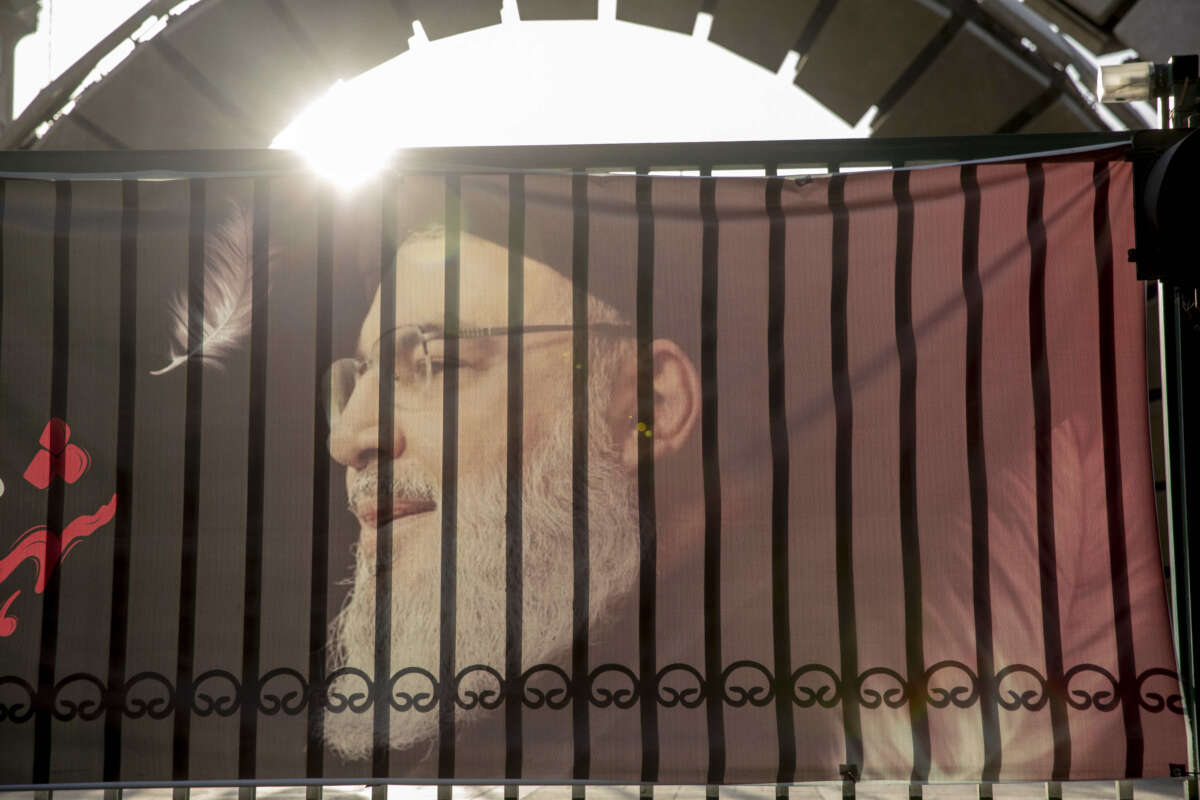The leader of Hezbollah agreed to a ceasefire proposal just hours before Israel assassinated him, a top Lebanese official has said.
According to Lebanese Foreign Minister Abdallah Bou Habib, Hezbollah head Hasan Nasrallah had informed Lebanese officials that the armed political group agreed to a ceasefire less than 24 hours before Israel targeted Nasrallah in a strike on a residential district in Beirut on Friday.
In an interview with Christiane Amanpour on CBS this week, Habib said that Hezbollah had agreed to a proposal put forth last Wednesday by U.S. President Joe Biden and French President Emanuel Macron. It called for an immediate 21-day ceasefire between Hezbollah and Israel, after Israel massively escalated attacks on Lebanon and vowed to once again occupy southern Lebanon.
Habib said that Lebanese officials relayed Nasrallah’s message to U.S. and French leaders, who told the Lebanese officials that Israeli Prime Minister Benjamin Netanyahu also agreed to the proposal. In the past, Netanyahu has loudly and clearly said that Israel will not agree to a ceasefire, though U.S. officials have reportedly said that Israel initially agreed to the proposal and later reneged.
“Are you saying Hasan Nasrallah had agreed to a ceasefire just moments before he was assassinated?” asked Amanpour.
“He agreed, he agreed, yes,” responded Habib. “We agreed completely — Lebanon agreed to a ceasefire… The [Parliamentary] speaker, Mr. [Nabih] Berri, consulted with Hezbollah. We informed the Americans and the French that that’s what happened. And they told us that Mr. Netanyahu also agreed on the statement.”
This is the latest instance of Israel actively sabotaging ceasefire talks with the U.S. Despite the U.S.’s insistence that Israel has agreed to multiple ceasefire and captive release proposals over the past year, Israeli officials have been openly rejecting the idea of a ceasefire, while reports have found that Netanyahu has been purposefully sabotaging negotiations in order to continue Israel’s genocide of Palestinians.
Israel has a pattern of assassinations of people connected to diplomatic talks. In July, Israel assassinated Hamas’s political leader, Ismail Haniyeh, who was the top ceasefire negotiator for the group. Al Jazeera’s Mohammad Alsaafin noted that, in previous decades, Israel also assassinated two other Hamas leaders just as they were prepared to approve ceasefire agreements during their respective wars — Salah Shehadeh, in 2002, and Ahmad Jabari, in 2012.
Israel also has a long history of killing Palestinian moderates as a strategy of garnering international support, particularly under right-wing Likud governments. In the early 1980s, a wave of assassinations killed numerous moderate Palestinian leaders and activists, at a time when Israeli hawks like Benjamin Netanyahu sought to portray “international terrorism” as a threat to liberal democracy worldwide.
Biden officials have repeatedly insisted in public statements that the administration is against escalation of tensions between Hezbollah and Israel. And yet, as Israel has begun bombing Beirut and other residential areas of Lebanon, and carried out deadly device attacks across the country, the U.S. has refused to draw back its military support of Israel — and has, instead, sent more U.S. troops to the Middle East to support Israeli forces.
Habib pointed out that a ceasefire will not happen unless the U.S. acts. “I don’t think we have an alternative. We need the United States’s help. Whether we get it or not, we are not sure yet, but [the] United States is very important, vital, for this ceasefire,” he said.
“I’m afraid that the United States is going to help Israel. They have said it many times,” the minister continued. “And god knows what will happen. Really, Christiane, I don’t know what’s going to happen. That’s what we’re afraid of.”
Angry, shocked, overwhelmed? Take action: Support independent media.
We’ve borne witness to a chaotic first few months in Trump’s presidency.
Over the last months, each executive order has delivered shock and bewilderment — a core part of a strategy to make the right-wing turn feel inevitable and overwhelming. But, as organizer Sandra Avalos implored us to remember in Truthout last November, “Together, we are more powerful than Trump.”
Indeed, the Trump administration is pushing through executive orders, but — as we’ve reported at Truthout — many are in legal limbo and face court challenges from unions and civil rights groups. Efforts to quash anti-racist teaching and DEI programs are stalled by education faculty, staff, and students refusing to comply. And communities across the country are coming together to raise the alarm on ICE raids, inform neighbors of their civil rights, and protect each other in moving shows of solidarity.
It will be a long fight ahead. And as nonprofit movement media, Truthout plans to be there documenting and uplifting resistance.
As we undertake this life-sustaining work, we appeal for your support. Please, if you find value in what we do, join our community of sustainers by making a monthly or one-time gift.
